For one boy growing up visually impaired in an impoverished community in the Philippines, the odds were firmly stacked against him. But with the love and support of his family — and educational sponsorship through Holt International — he is well on his way to achieving his dreams in life.
When Gabriel was 6 years old, he came down with a fever that worried his mom. She took him to a private doctor, who prescribed antibiotics. But he soon developed a heat rash all over his body and his fever continued going up. Doctors struggled to figure out what was going on — first misdiagnosing him with a viral infection, then hand, foot and mouth disease. Eventually, they realized that he had a rare condition called Stevens-Johnson syndrome. The first doctor he saw had also prescribed too high a dose of antibiotics. As a result of his illness and the overdose of antibiotics, Gabriel suffered severe health issues as well as permanent, partial vision loss.
Today, Gabriel is 16 and in the tenth grade at a local public school in Metro Manila, Philippines.
On a cloudy day in late August, Gabriel and his mom meet us on a street corner to guide us to their house, which would be impossible to find without their help. We follow them into a concrete labyrinth of dense urban housing, the overcast Manila sky barely visible between strips of sheet metal roofing and jumbled telephone wires that dangle haphazardly overhead. The streets along the narrow corridors are wet from recent rains, and lined with motorbikes, bicycles, sleeping cats and windowsills full of plants that add some welcome green to this “barangay,” or neighborhood, where hundreds of families live side by side — with no breathing room between them.
“We call them ‘depressed areas,’” says Glady Bunao, executive director of Kaisahang Buhay Foundation (KBF), Holt’s partner in the Philippines. “Most of the scholars we’re serving are really the poorest of the poor, and this community is included in those that are considered poorest of the poor.”
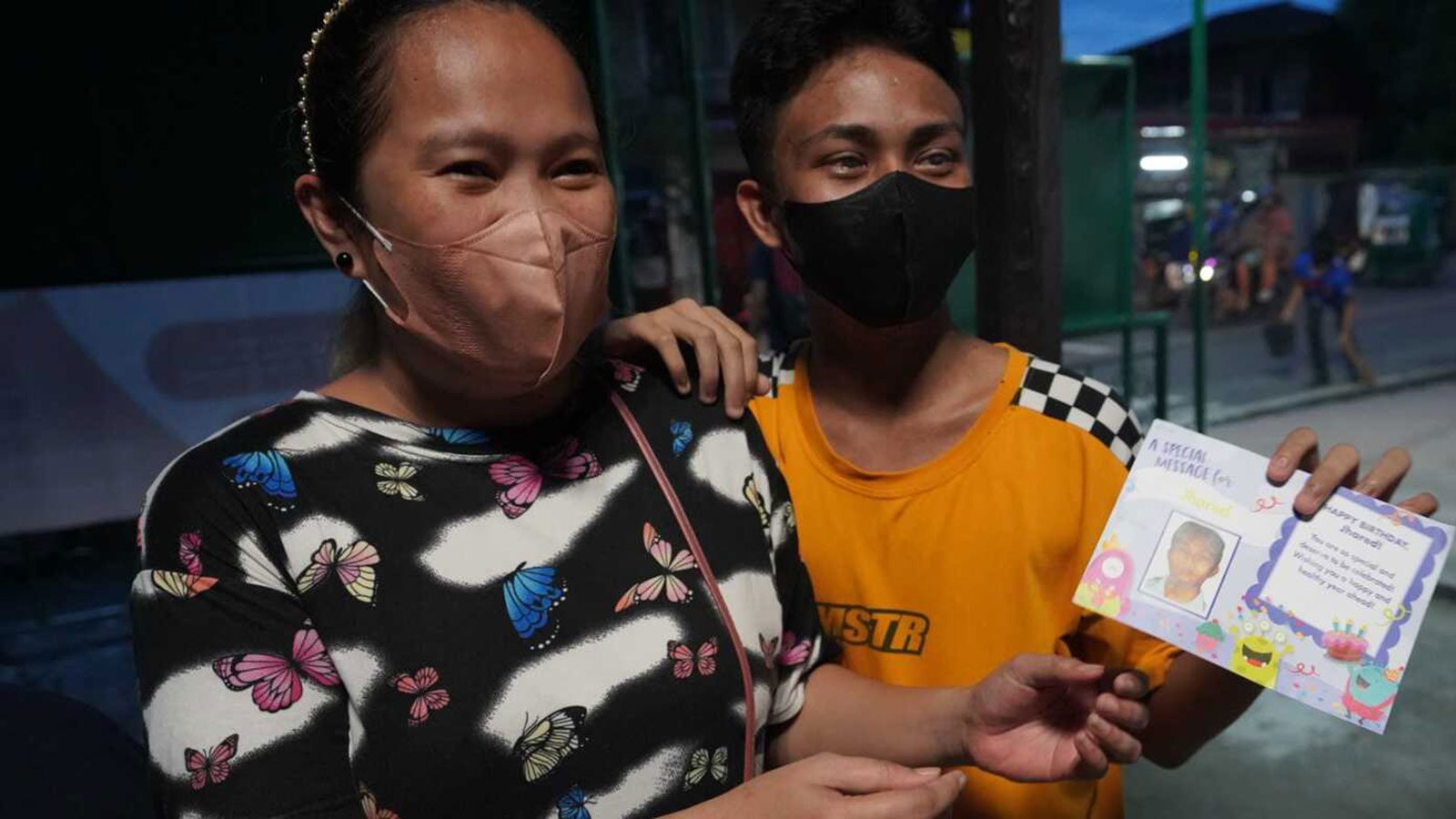
In his community, Gabriel is one of 66 students — or “scholars,” as Glady lovingly calls them —who receive monthly support from a Holt sponsor. Across the Philippines, over 1,150 children living everywhere from rural sugarcane plantations to urban barangays — in child care centers or with their families — are part of Holt’s child sponsorship program.
Because of his sponsor, Gabriel receives everything he needs to go to school — including basic supplies such as notebooks and pencils, uniforms required to attend class, new clothes and shoes every year, and the funds to cover fees charged annually by his school. Although primary and secondary school is technically free in the Philippines, every year schools charge anywhere from $75-$200 in building, maintenance, teacher and academic fees. And that’s just for one child. For a family of five like Gabriel’s that earns maybe $60 per week, the high cost of fees and supplies can make school unaffordable and cause children to drop out early. Sometimes, it means a family must choose which of their children get to go to school — and which stay home.
“When we’re providing for the needs of the children, we prevent family disintegration. We prevent families from surrendering their children for adoption. That’s the goal also — so that kids will stay with their family.”
Glady Bunao, Executive Director of KBF, Holt’s partner in the Philippines
“There are a lot of families who prioritize their children if they cannot send all their children to school,” Glady explains. “Somebody’s going to be sent, somebody’s going to stay.”
Although gender bias is no longer as much of an issue in the Philippines as it used to be — and still is in many countries where Holt works — other prejudices continue to determine who is most likely to succeed and who is most likely to be excluded. As in many countries, discrimination toward people with disabilities is still firmly entrenched in the Philippines, with few resources or opportunities available to them.
“There are such limited services for special education in the Philippines. There are opportunities, but there are more children with special needs availing it so that’s the problem,” Glady says.
For people with disabilities who are living in poverty, the odds are even more stacked against them.
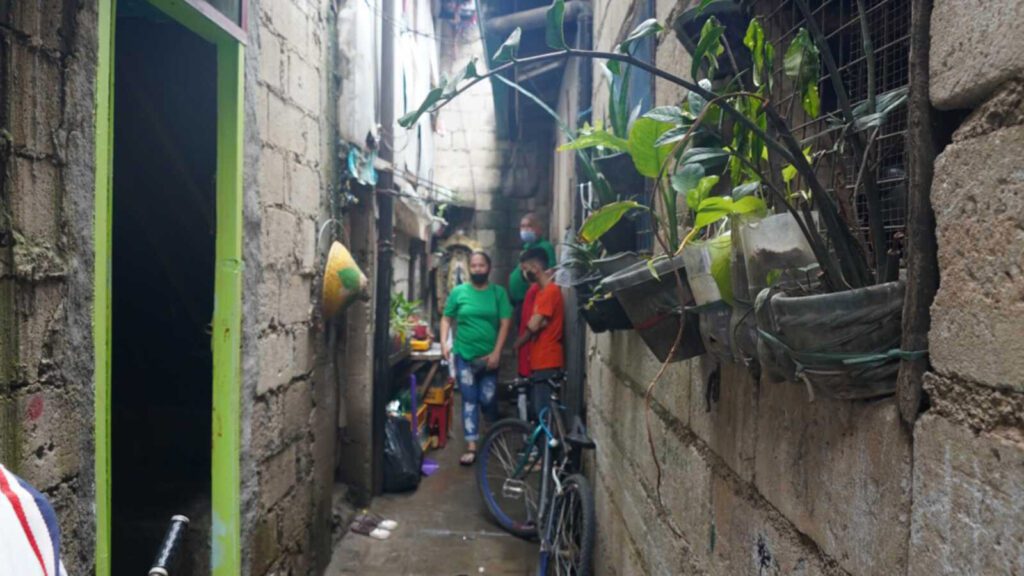
Due to the severe medical condition he suffered when he was younger, Gabriel can only see a white reflection out of his left eye and can only partially see from his right one. But Gabriel has persevered and, in many ways, overcome his limitations. For a long time, his mom had to walk him to school. Now, he navigates the labyrinthine corridors of his neighborhood with ease. He helps with household chores, sometimes cooks meals for his family and even helps his mom with the small food stand she runs outside of their home. He also manages to do pretty well in school, though he struggles with reading. In class, he sits in the front row so he can see the blackboard better, and sometimes his fellow students will help him take notes.
As his social worker writes, “Despite his disability, he is determined and can compete with others in the school.”
But if Gabriel’s parents were forced to choose which of their children get to go to school, and which stayed behind, they may have kept Gabriel home.
“The income of the father is not stable. The income of the mother is also not stable,” Glady says of Gabriel’s parents. “The mother even expressed when we were there that sometimes, she just wanted to give up. If there is no educational assistance, then it will add to their problems. So we don’t know what’s going to happen.”
Keeping a child home from school because their parents can’t afford supplies and fees is devastating as it is. But sometimes, out of desperation, parents living in poverty in the Philippines will make an even more heartbreaking decision.
“When children are surrendered for adoption, one reason is because of poverty. The parents are not able to provide for their needs. For House of Refuge, most of the children there are older and they are abandoned,” Glady says, referring to a Holt sponsor-supported care center we later visit in Manila. “When we find their families, they will say it’s better for them to be in your care instead of staying with us because we have no opportunity — we cannot send them to school. If they get sick, we cannot bring them to a doctor.”
But when sponsors help meet the medical, nutritional, educational and other basic needs of children, it has a profound effect not just on the child — but the parents, too.
“For a visually impaired student like me, it has not been easy. But because of CISSL teachers and everyone who makes up KBF and Holt International, it is not just with things for learning but help to have self-confidence that I have the ability to finish my studies and reach my dream in life.”
Gabriel, sponsored scholar in the Philippines
“We also provide parent support like training — equipping the parents on how to help their children, because it’s not enough to provide educational assistance. We have to equip the parents on how they will teach the children, support the children in their homework. Be an encouragement to their children,” Glady says, adding that they also emphasize the importance of parents’ caring for their own mental health.
With support, parents feel more empowered and capable. They are less likely to lose hope, and less likely to place their children in someone else’s care.
“When we’re providing for the needs of the children, we prevent family disintegration,” Glady says. “We prevent families from surrendering their children for adoption. That’s the goal also — so that kids will stay with their family.”
For a child with special needs like Gabriel who may need costly medical care, specialized therapies or special education, families face even greater struggles — and are at even greater risk of relinquishing them to a care facility that can meet their needs.
“For Gabriel, if he wasn’t given the opportunity,” Glady says, “we don’t know what’s going to happen to him.”
Thankfully, he was given an opportunity — not only by the social workers at KBF who know him well, but by a few kind and generous people who he has never personally met.
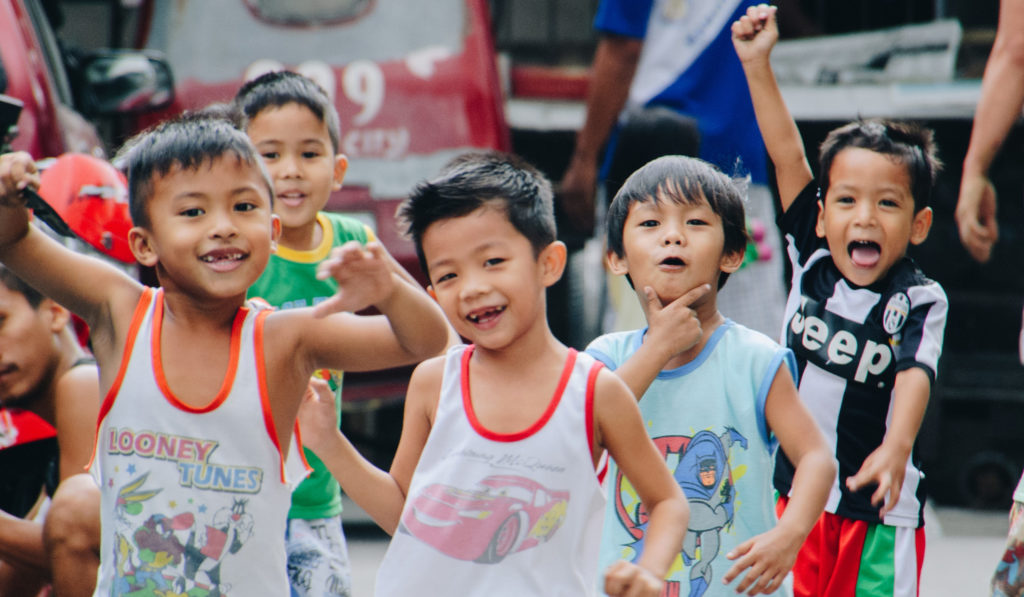
Learn more about Holt’s work in the Philippines!
See how sponsors and donors create a brighter, more hopeful future for children and families in the Philippines!
Who is Behind These Generous Gifts?
Gabriel’s home is the last one in a row of homes, with an icon of the Virgin Mary set into the adjoining wall and a few plants reaching for the thin strip of light that shines down from above. Inside, the living space is small and dark, but welcoming and neatly organized. Gabriel lives here with his mom, dad and two younger siblings. His younger brother is in 14 and his younger sister is 7. They have two floors, with the second-floor loft area accessible by ladder. Upstairs, boxes of clothes, toys and other belongings line the edges of the tiny space where the whole family of five sleeps on the floor each night. Through the thin walls, we can hear the neighbors talking and playing music. A barking dog sounds like it’s somewhere inside Gabriel’s house, but it’s a neighbor’s dog.
“They have to make do with whatever is available,” Glady later says of families who live in the cramped, often makeshift housing of Manila’s impoverished barangays — adding that many families live in worse conditions than Gabriel and his family. “You know, Filipinos are very resilient so whatever is available,” she says, “they will live with it.”
The families living in this area are especially vulnerable to Manila’s tropical weather. Typhoons are year-round in the Philippines, but the last big one that hit Manila — in 2019 — caused flooding up to the second floor of Gabriel’s house. With sponsor and donor support, KBF hired a military truck to deliver food, medicine and other supplies to the families living in the community. Gabriel and his family made it to safety and hunkered down at his nearby school, but they lost many of their possessions — including a special magnifying glass that Gabriel used to read with.
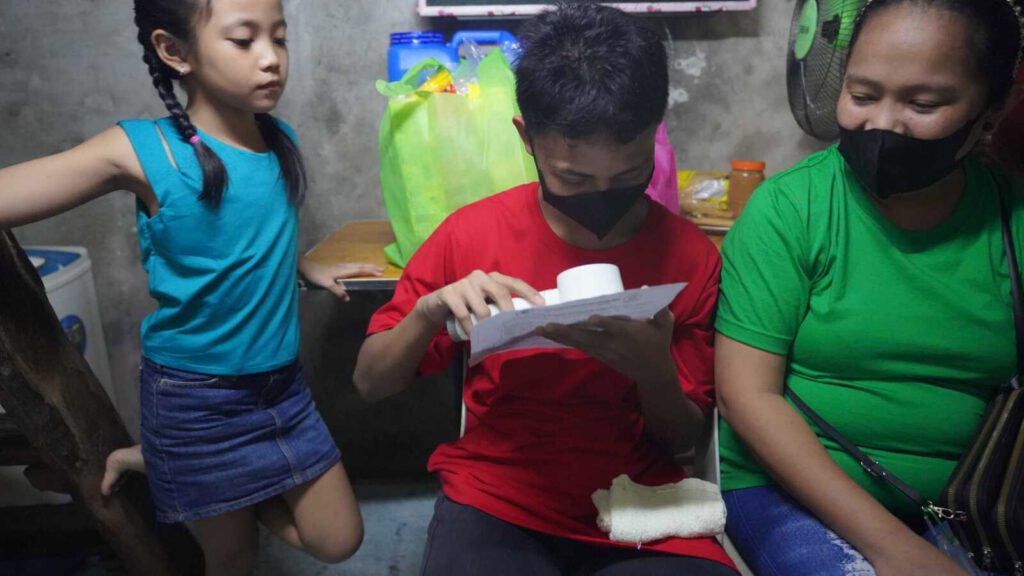
With sponsor and donor support, KBF has since replaced his magnifying glass — and also provided Gabriel and his fellow sponsored children with large plastic containers in which to store their school supplies so they won’t get ruined when it floods. For children and families in educational sponsorship in the Philippines, even notebooks and pencils are valuable possessions that they can’t risk losing.
“One dollar is precious for them,” Glady says. “They don’t want to spend a lot of money on something that is not an actual necessity.”
That’s why, every two months, Gabriel and his family marvel at the boxes of food, hygiene and school supplies that KBF delivers to their home. Inside, they find precious goods such as rice, milk, shampoo, toothpaste, rulers, notebooks, shoes, bags and uniforms. During the pandemic, sponsors even made it possible to provide electronic tablets for Gabriel and his fellow sponsored students so they could attend school remotely.
“They ask, ‘Who is behind this?’” Glady says of Gabriel and his family. Who are the generous people who provide all of this for them?
Although Gabriel knows he has sponsors in the U.S. — he has received birthday cards from them, and every so often he writes letters in response — he and his family are still beside themselves that anyone could be so kind to someone they’ve never met.
In his letters, Gabriel always expresses his gratitude and shares about his progress in school. Recently, he wrote a letter saying, “Thank you very much […] for all the help that you are giving for our necessary school supplies. It’s not just school supplies that you provide through the various activities that you do, you also teach us various things that can help not only in learning, but also in our being human as a student.”
As a visually impaired student, Gabriel does struggle a bit to keep up with his classmates. His KBF social workers are exploring opportunities for him to attend a school for visually impaired students that can give him the specialized education and support that he needs. But as Glady explained, special education programs are limited and often at capacity in the Philippines. At the same time, Gabriel’s mother has struggled to accept that her son would benefit from special education.
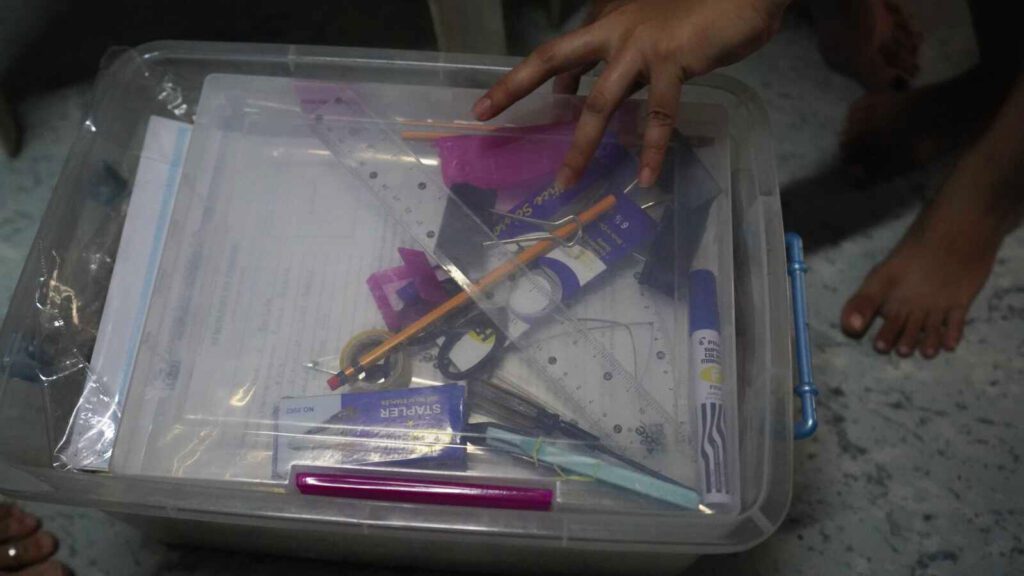
His mom cries as she shares the story of Gabriel’s traumatic childhood illness. Her son almost died, she says, and his eyes were nearly destroyed. Although she says she has nearly lost hope at times, her love and devotion for her son is obvious. During the pandemic, when Gabriel attended online classes, she would often read lessons aloud to him and describe what was shown on the screen during Google Meet classes. She understands why he feels that he can’t keep up with his classmates’ pace of learning, and has come around to the idea of enrolling him in a school for visually impaired students — if KBF can find a spot for him.
“For Gabriel, his family is his main source of support, particularly his mother who assists him with the things he cannot do, especially matters related to his studies,” Gabriel’s social worker writes. Gabriel is also very close with his younger brother, with whom he loves to jam on the guitar. Gabriel’s social worker says he has open communication with his parents, who are always checking in with Gabriel and his siblings — asking about school, their friends, their lives.
The love and support they give him shows in how he feels about himself. “Despite his condition, Gabriel remains to have high self-confidence,” his social worker writes. “He rates his self-confidence as an eight out of ten.”
Educational Sponsorship Gives Hope and Opportunity
During our visit with Gabriel, he eagerly jumps up to show how he helps cook meals in the family’s small kitchen.
After he graduates high school, Gabriel hopes to become a chef. He already takes cooking classes at school, and he helps his mom prepare the foods she sells at her roadside stand. When sponsored students graduate, KBF social workers will try to help them get scholarships to attend college — or find employment if they don’t plan to go on to college. For Gabriel, the social workers will do their best to find a vocational training program that can accommodate his special needs.
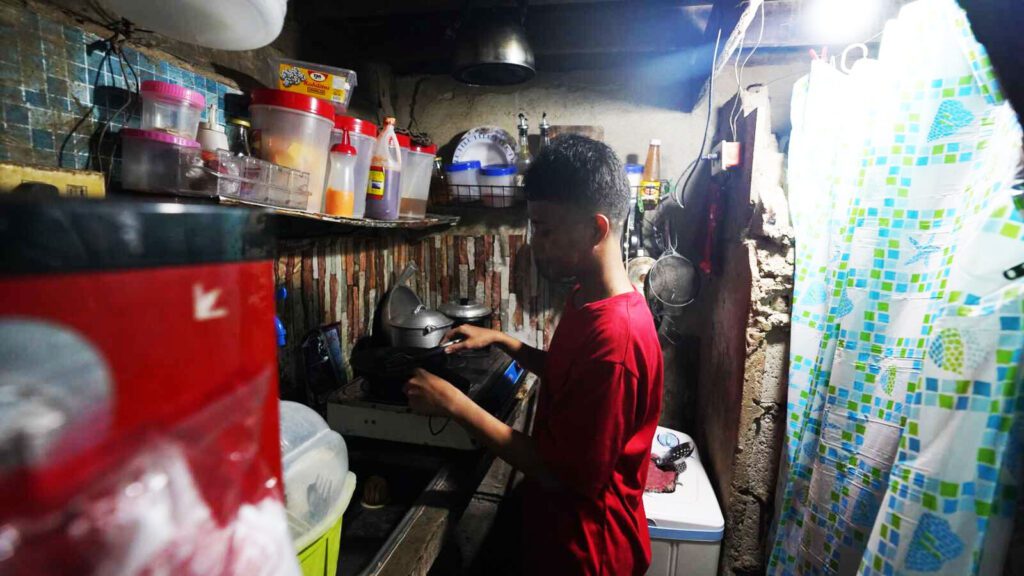
But just graduating high school is often a significant achievement for children living in some of the most impoverished barangays in Manila.
“If they finish high school at least, some of the job opportunities available usually require ‘high school graduate,’” Glady says, explaining the importance of a high school education in the Philippines. “Like for houseparent, when caregiving institutions hire houseparents or caregivers, they say ‘at least high school graduate.’ So finishing education is very important for them. If they don’t finish, it may be very difficult to find opportunities to get out of poverty.”
Among sponsored students in the Philippines, the graduation rate is very high. They don’t take the opportunity given by their sponsors for granted.
“They’re always thankful because if not for sponsors from Holt, they would not have this kind of opportunity to graduate from school,” Glady says.
For Gabriel, graduating high school is the first major step to achieving his dream of becoming a chef. And with the support of his family, his social workers, his teachers and his sponsors, he feels confident he can get there.
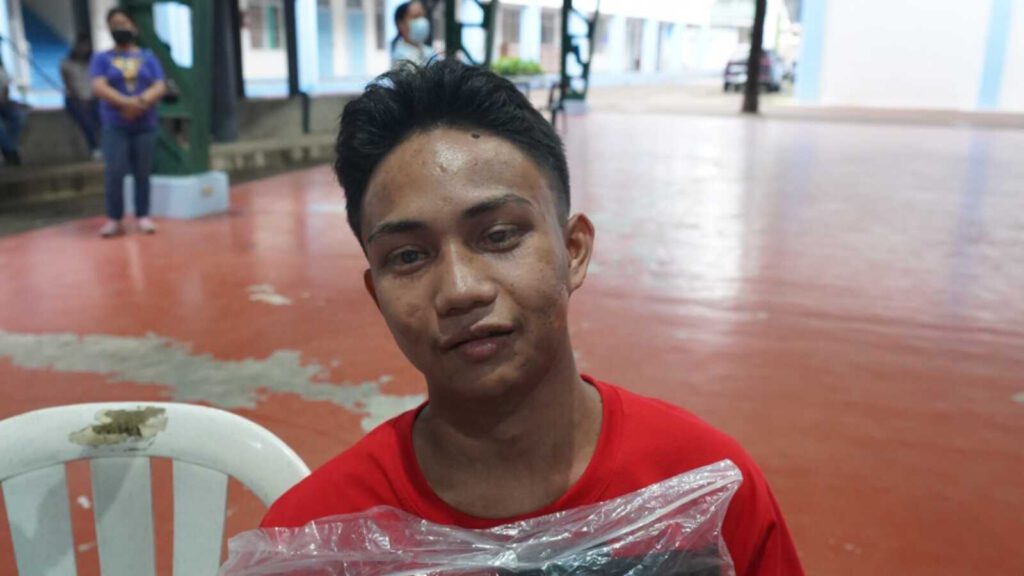
In concluding his last letter to his sponsors, he wrote, “For a visually impaired student like me, it has not been easy. But because of CISSL teachers and everyone who makes up KBF and Holt International, it is not just with things for learning but help to have self-confidence that I have the ability to finish my studies and reach my dream in life.”
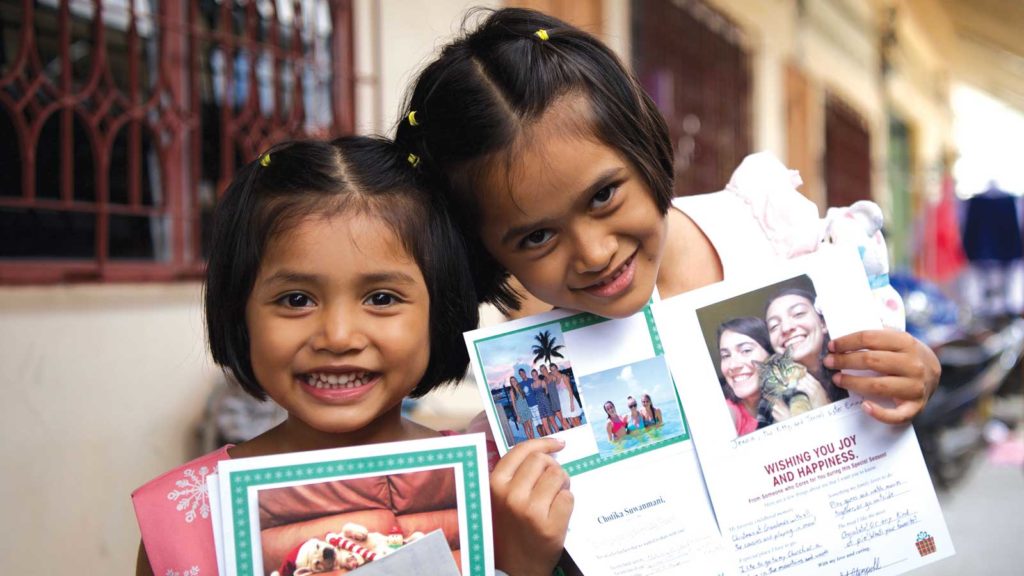
Become a Child Sponsor
Connect with a child. Provide for their needs. Share your heart for $43 per month.
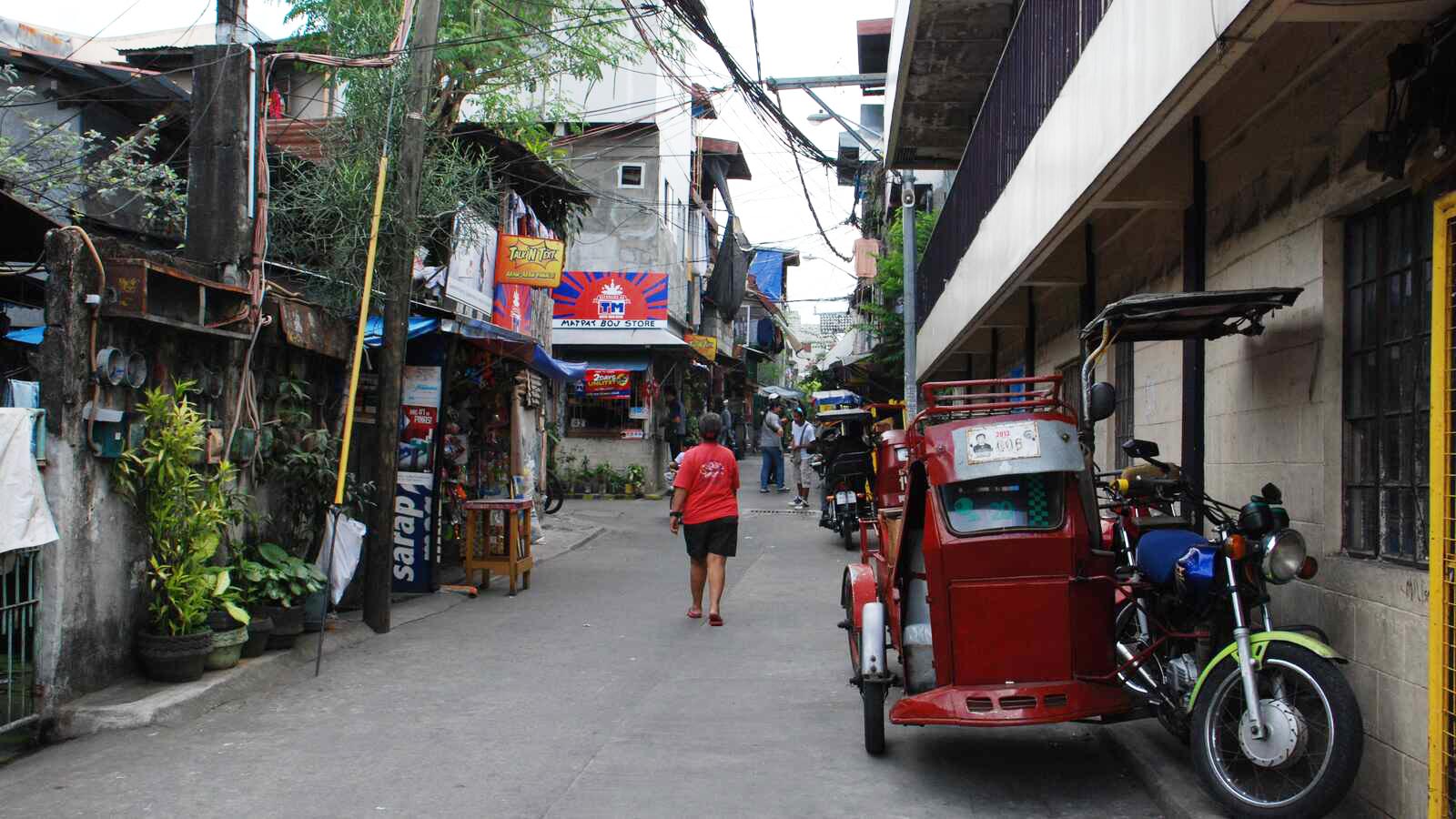
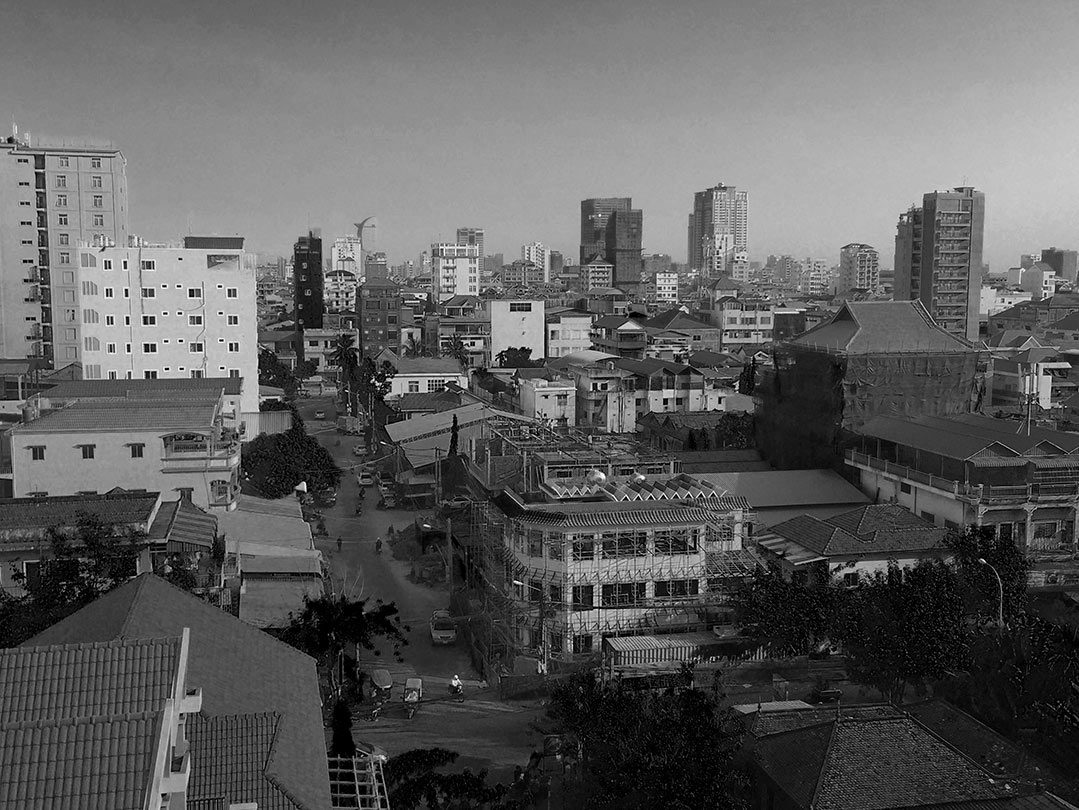
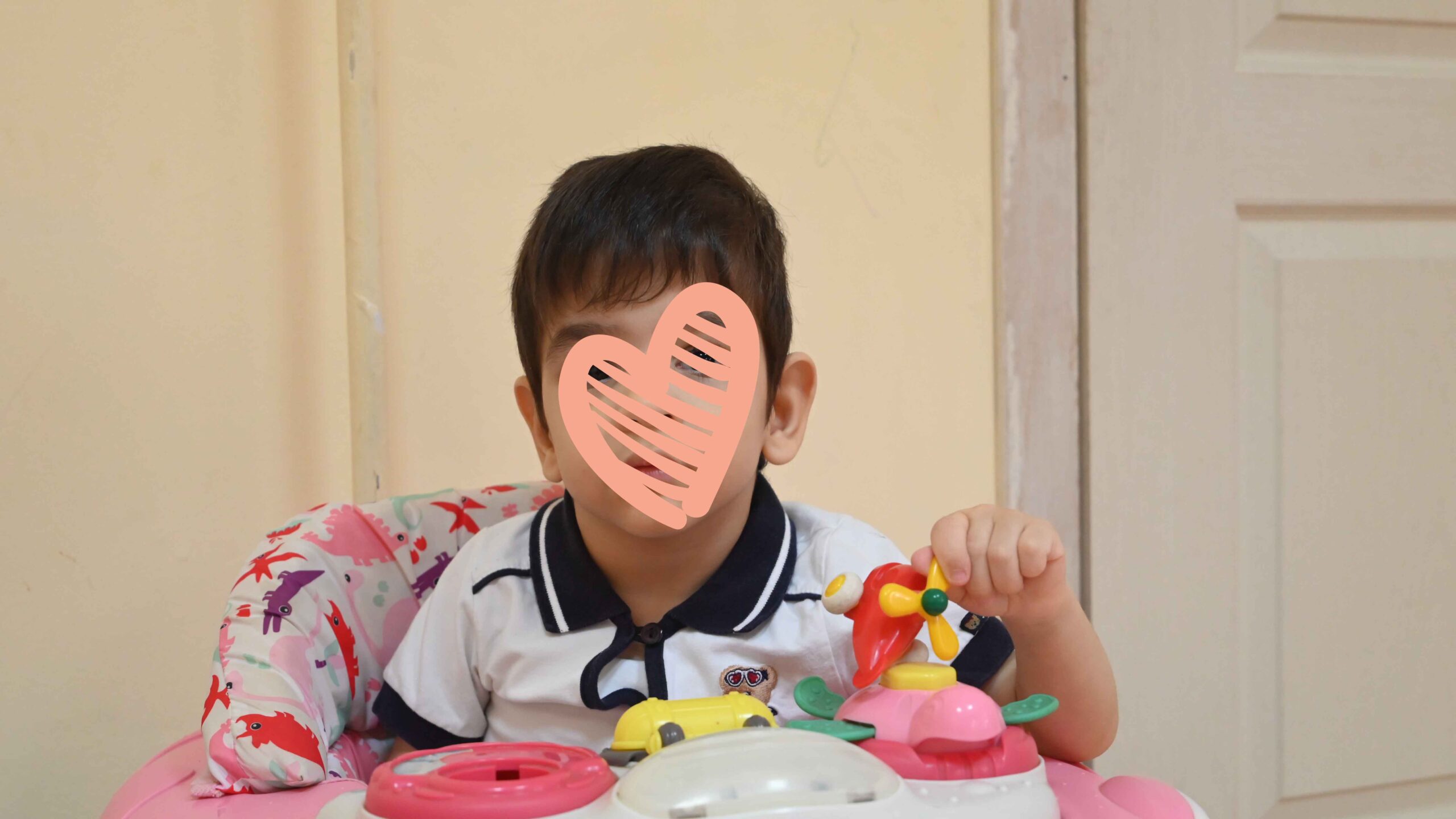
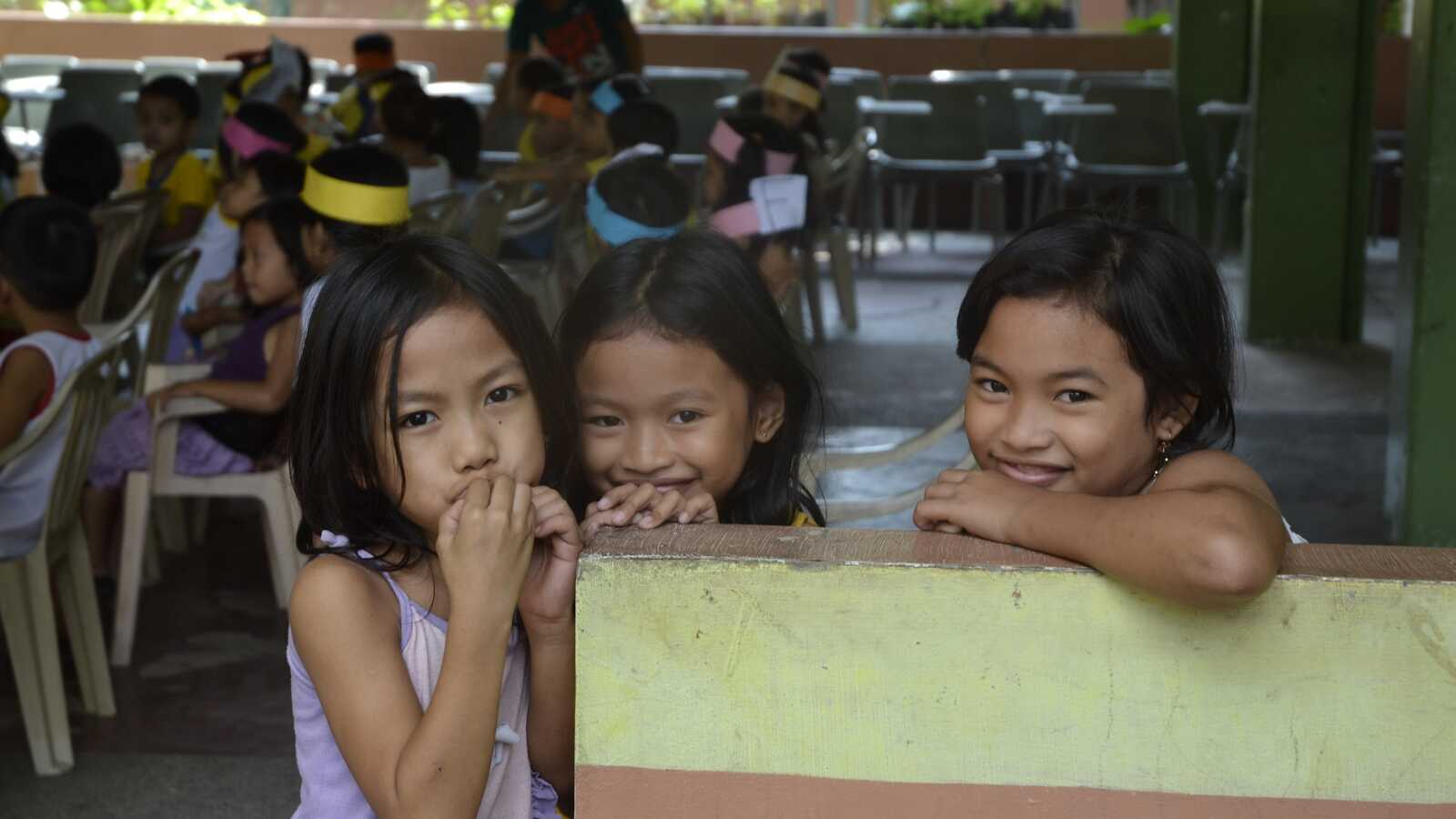


Beautifuly written story … that beams with smiles and lots of hope!